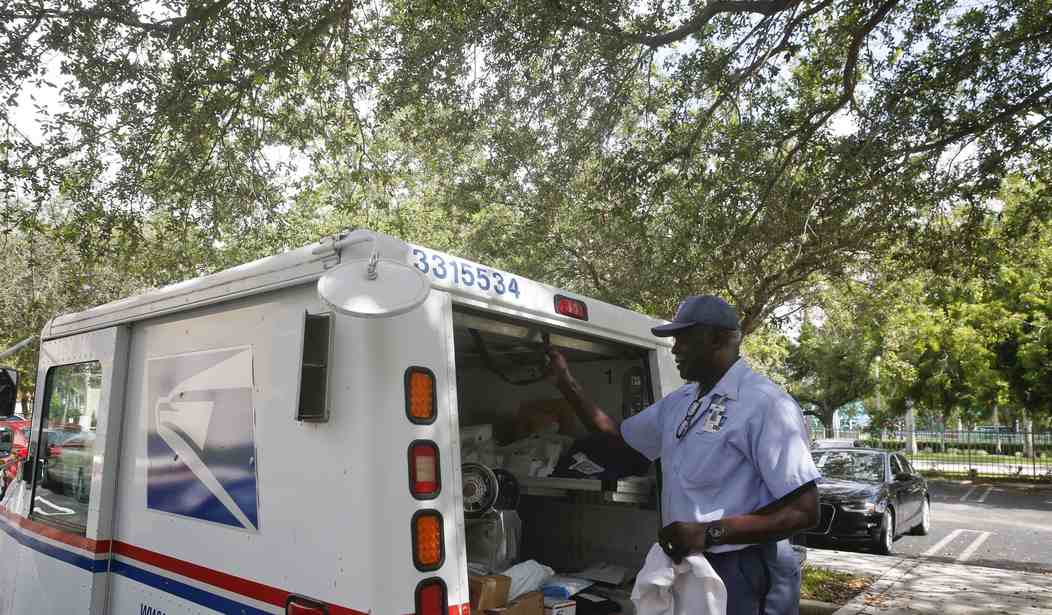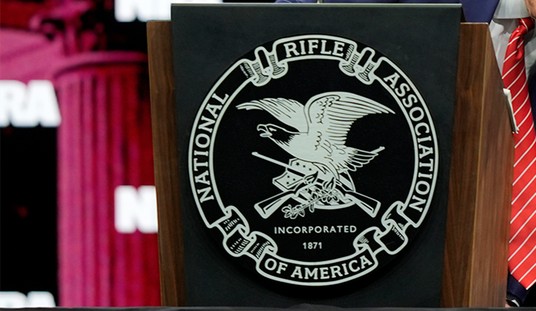The Department of Justice will no longer seek to put a postal worker in prison for carrying a concealed firearm for self-defense while on the clock; a major reversal from the Biden administration's prosecution of the gun owner.
Emmanuel Ayala was arrested at work in Tampa almost three years ago after he was caught carrying a firearm in a fanny pack. Ayala, who possessed a valid Florida carry license, maintained that he had the pistol with him for self-defense, and argued that he had a Second Amendment right to do so.
The Biden-era DOJ, on the other hand, declared that the text, history, and tradition of the Second Amendment allowed for gun bans in government buildings, including postal facilities. U.S. District Judge Kathryn Kimball Mizelle sided with Ayala, ruling that the DOJ had failed to come up with any historical analogue that would suggest the ban on firearms in postal facilities is constitutional.
Since the Post Office's creation, mail carriers have faced the risk of violence. Passengers of nineteenth-century stagecoaches, which carried mail, “risked death or injury if coaches were attacked by robbers or Indians.” Recognizing this reality, Congresses in the first half of the nineteenth century appropriated money to reward individuals who helped apprehend postal robbers. In the latter half of the nineteenth century, when locomotive became the dominant way to move mail, bandits threatened postal workers aboard trains. t. Yet the federal government never sought to ban firearms to protect employees or secure mail delivery. In fact, when mail train robberies became a growing threat in the early twentieth century, the Postmaster General armed railway mail clerks with “government-issued pistols” from World War I.
Although the “general societal problem[s]” of violence directed towards postal employees and threats to mail delivery “ha[ve] persisted since” at least the founding, there is a “lack of a distinctly similar historical regulation addressing that problem.” As the United States acknowledges, the first prohibition on firearms possession in government buildings was not codified until 1964. And the first regulation specifically banning arms on post office property was codified in 1972. Section 930 itself was not enacted until late 1988, a mere thirty-five years ago.
Biden's DOJ launched an appeal with the Eleventh Circuit in the hopes of convincing a panel of judges that Mizelle had erred in her decision.
... in appealing last year, Justice Department attorneys pointed to what they said were the Supreme Court’s “repeated assurances about the government’s settled authority to regulate firearms in government buildings” considered “sensitive places.”
“The (Supreme) Court has said many times in many ways that the Second Amendment does not call into question settled firearm prohibitions in government buildings,” the brief said. “The district court’s carve-out of a post-office exception conflicts with each of those opinions.”
Now the DOJ, under the leadership of Attorney General Pam Bondi, has told the appellate court it will no longer pursue its case against Ayala. In a filing, DOJ attorneys wrote that "continuing to pursue the appeal is not appropriate use of prosecutorial resources.”
Ayala still faces a charge of resisting arrest, though the fact that he was resisting being arrested for violating a law that itself has been declared unconstitutional may prove to be problematic for federal prosecutors going forward. And the DOJ's move doesn't mean that the U.S. Postal Service is no longer a "gun-free zone". Judge Mizelle's decision doesn't set a local precedent, much less a new national standard, and until the USPS officially revises its policies and drops its prohibition on lawfully-carried firearms both patrons and employees could still face charges of their own if they're caught with a gun at a post office.
There are several other lawsuits challenging that policy already underway, and I hope that the DOJ's decision is a sign that the Trump administration may soon move to rescind that policy altogether. As Mizelle pointed out, there is virtually no longstanding historical tradition of banning guns in all government buildings or postal facilities specifically, and it's a waste of time and taxpayer dollars to continue defending such a blatantly unconstitutional policy. The DOJ made the right call in dropping its case against Ayala, and now USPS needs to follow suit.
Editor’s Note: There's a night-and-day difference between President Trump and Joe Biden when it comes to our Second Amendment rights and right to self-defense.
Help us continue to report on these 2A victories. Join Bearing Arms VIP and use promo code FIGHT to get 60% off your VIP membership.









Join the conversation as a VIP Member